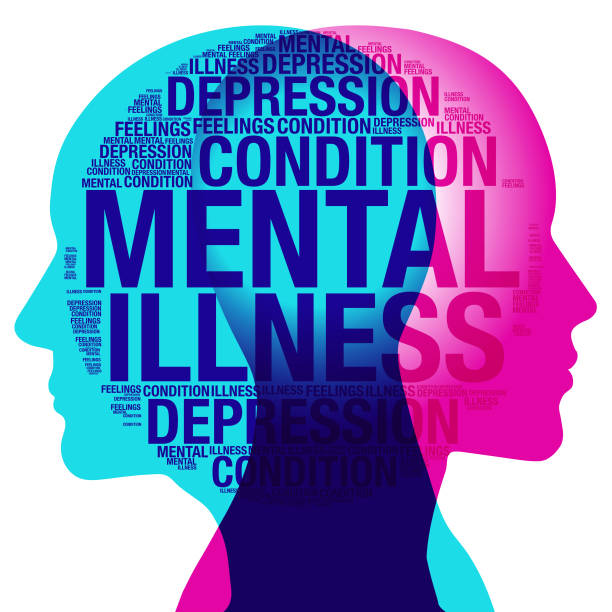How is Ramaz Supporting Students’ Mental Health?
A male and female side silhouette positioned back to back, overlaid with various sized words related to the topic of mental health and depression.
According to the Center for Disease Control and Prevention “Mental health includes our emotional, psychological, and social well-being. It affects how we think, feel, and act. It also helps determine how we handle stress, relate to others, and make healthy choices.” With the often rigorous work schedules at school it is likely that students may have trouble managing academic stress coupled with outside stressors.
Coronavirus has added another layer of mental stress on students and teachers alike. Ms. Bernfeld and Dr. Zeitchik are working on ways to have conversations with students that emotionally resonate with them. Dr. Zeitchik emphasized that, “what we have been through has created an opportunity for us to think about new ways to be supportive of students and their families and the unique experience we’ve had. We, as a student body and faculty, need to continuously collaborate so that we are in touch with the real emotional needs of the school community”.
One way Ramaz supports the students’ mental health is the advisory program. Unlike last year, however, advisory is no longer meeting weekly – rather advisories will meet about ten times over the course of this year. Each grade will be doing, and discussing different things. For example, juniors will hear from different speakers about important topics and then have discussions afterwards in their respective advisory groups.
Dr. Zeitchik, who runs the advisory program alongside Ms. Bernfeld, told The Rampage that the goal of advisory is for, “students and teachers to have conversations about matters of substance, but with a light touch.” In advisory students are encouraged to have open discussions about specific topics in a small, relaxed environment. Dr. Zeitchik added that, “we want to use the advisories to address serious topics, but we also sometimes want to take students to the park so they can breathe. It is signaling to students that we want them to be able to just enjoy each other’s company within the context of school.”
This year the school reintroduced health class for freshmen, sophomores, and juniors. Each class will meet once a week and learn about matters relating to health – including mental, physical and spiritual health. It is also another space where students are encouraged to engage in honest conversations and ask questions. Dr. Zeitchik pointed out that having health class built into students’ schedules, “gives you a framework on a constant basis where kids are talking. It signals to students that it is a priority of the school.” Dr. Zeitchik and Ms. Bernfeld hope for the advisory program to work in tandem with health class. They hope for advisory and health class to collaborate and discuss topics that can not be covered in just one of the two forums.
This school year feels considerably tougher than last year to most students; the longer daily schedule means spending more time in the building. When asked how the school will help students manage their stress caused by academic load, Dr. Zeitchik answered, “If you sense that as a grade, or an individual is really feeling under siege, like it’s just too much, then you have to figure out how to help them manage it. Maybe something needs to be moved. Maybe it needs more flexibility. You also don’t want to create an environment where any time a kid is stressed about a test, it is perceived as a crisis and something has to be canceled. So it’s a balance. It’s a balance between taking kids’ communication seriously about when they feel stressed, either as an individual or as a group. On the other hand, trying to not reinforce students avoiding reality, and recognizing that taking on responsibilities and expectations is stressful yet part of cultivating resilience and mature coping skills.”
Mental health is an ongoing topic of discussion at school and is just the beginning of the conversation. Dr. Zeitchik added, “The discussion should be a catalyst for students coming forward to us with issues that they think are important for us to be sensitive to, and to collaborate on working together, to support the student body”. The school is working to support the mental health and emotional well-being of its students. Dr. Zeitchik also feels that besides advisory group meetings, advisors also want to connect with kids individually to be supportive in any way that they can.



